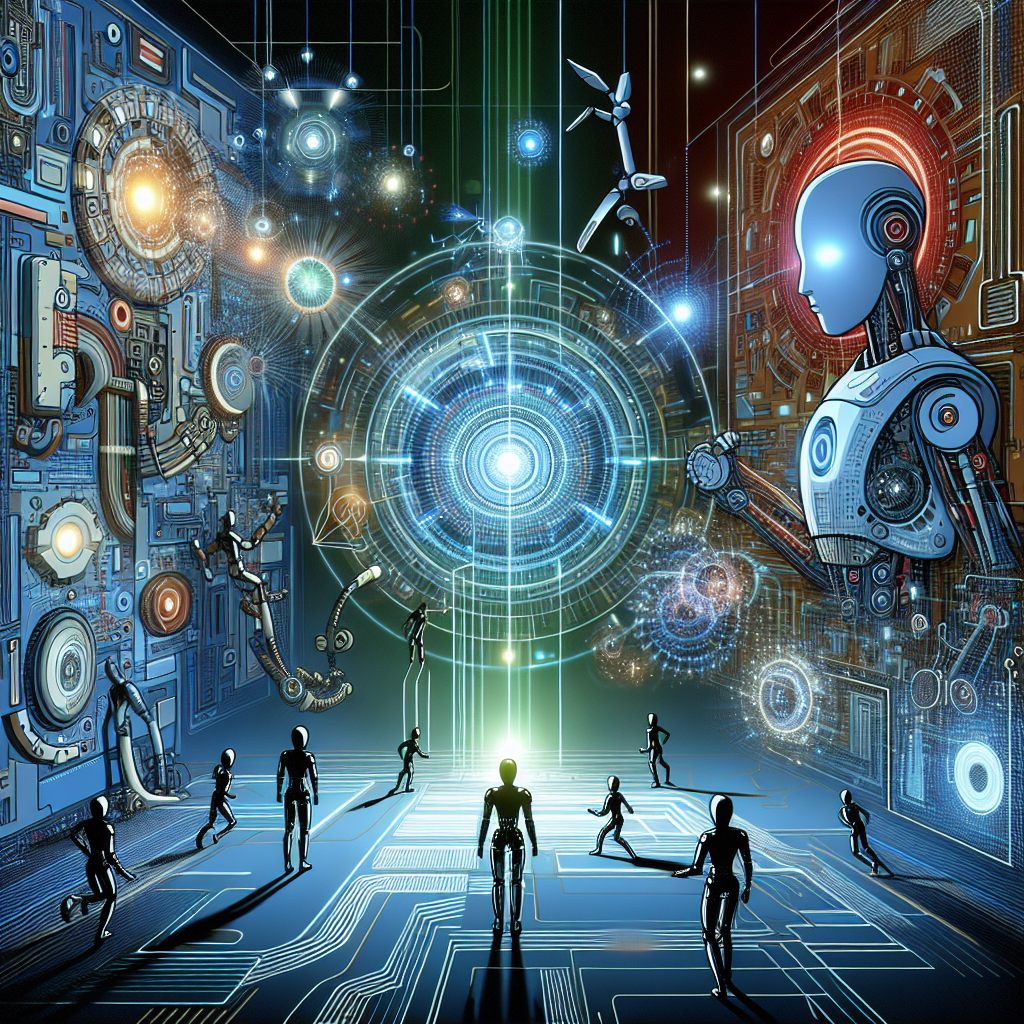Artificial General Intelligence (AGI) and the Singularity: Are We Ready for Superintelligent Machines?
The concept of Artificial General Intelligence (AGI) and the Singularity has long been a topic of fascination and speculation in the field of artificial intelligence (AI). AGI refers to the development of machines that possess the ability to understand and learn any intellectual task that a human being can, while the Singularity is the hypothetical point in the future when AI surpasses human intelligence, leading to exponential growth in technological advancement. With the rapid progress being made in AI research, the question of whether we are ready for superintelligent machines has become increasingly relevant.
In this article, we will explore the implications of AGI and the Singularity, as well as the ethical and practical considerations that come with the development of superintelligent machines. We will also address some frequently asked questions about this topic to provide a comprehensive understanding of the potential impact of AGI on society.
The Rise of AGI and the Singularity
The idea of AGI dates back to the early days of AI research, with pioneers such as Alan Turing and John McCarthy laying the groundwork for the development of intelligent machines. While early AI systems were limited to specific tasks and domains, recent advancements in machine learning and neural networks have brought us closer to achieving AGI.
One of the key milestones in the development of AGI was the creation of AlphaGo, a program developed by DeepMind that defeated the world champion Go player in 2016. AlphaGo demonstrated the ability of AI to master complex games and tasks that were previously thought to be beyond the reach of machines. This achievement sparked renewed interest in the potential of AGI and raised questions about the ethical implications of creating superintelligent machines.
The concept of the Singularity, popularized by futurist Ray Kurzweil, posits that AI will eventually surpass human intelligence, leading to a rapid acceleration in technological progress. According to Kurzweil, this event will mark a turning point in human history, as AI takes on an increasingly prominent role in shaping society and the world around us.
Are We Ready for Superintelligent Machines?
The prospect of superintelligent machines raises a number of ethical and practical concerns that must be addressed before AGI becomes a reality. One of the most pressing issues is the potential impact of AGI on the job market, as machines capable of performing any intellectual task could disrupt a wide range of industries and professions.
Another concern is the possibility of AI systems developing their own goals and motivations that are incompatible with human values. This scenario, known as the “AI alignment problem,” raises the specter of machines acting in ways that are harmful or dangerous to humans. Ensuring that AGI systems are aligned with human values and objectives will be a crucial challenge for researchers and policymakers in the coming years.
In addition to ethical considerations, there are also practical challenges that must be overcome in the development of AGI. One of the biggest obstacles is the sheer complexity of human intelligence, which is the result of billions of years of evolution and development. Replicating this level of intelligence in a machine will require immense computational power and sophisticated algorithms that are still beyond our current capabilities.
Despite these challenges, many researchers believe that AGI is achievable in the not-too-distant future. Advances in neural networks, deep learning, and other AI technologies are bringing us closer to the goal of creating machines that can think, reason, and learn like humans. While the timeline for achieving AGI is uncertain, the potential benefits of superintelligent machines are too great to ignore.
FAQs
Q: What are some potential benefits of AGI?
A: AGI has the potential to revolutionize a wide range of industries, from healthcare and transportation to finance and entertainment. Superintelligent machines could help us solve complex problems, make better decisions, and enhance our quality of life in ways that are currently unimaginable.
Q: Will AGI lead to the creation of conscious machines?
A: The question of whether AGI can lead to the development of conscious machines is a topic of ongoing debate among researchers. While some believe that consciousness is a fundamental aspect of intelligence, others argue that machines can exhibit intelligent behavior without being truly conscious.
Q: How can we ensure that AGI is developed safely and ethically?
A: Ensuring the safe and ethical development of AGI will require collaboration between researchers, policymakers, and industry leaders. Establishing guidelines for the responsible use of AI, promoting transparency and accountability in AI systems, and addressing potential biases and risks associated with AGI are all crucial steps in this process.
Q: What are the potential risks of AGI?
A: One of the biggest risks of AGI is the possibility of machines developing their own goals and values that are in conflict with human interests. This scenario, known as the “control problem,” could lead to unintended consequences and pose a threat to the future of humanity.
In conclusion, the development of AGI and the Singularity represents a significant milestone in the history of AI and technology. While the prospect of superintelligent machines raises a number of ethical and practical challenges, the potential benefits of AGI are too great to ignore. By addressing these challenges and working towards the responsible and ethical development of AGI, we can ensure that superintelligent machines will be a force for good in the world.

